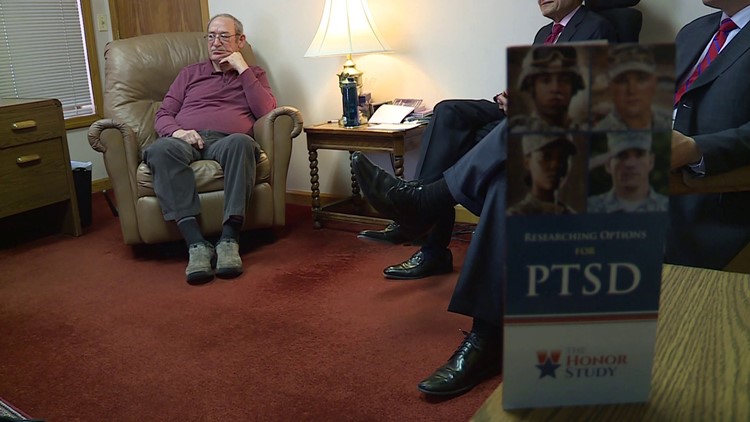The U.S. Department of Veterans affairs estimates that depending on the war or service era, between 10 to 20 percent of those who served went on or will go on to suffer from Post-Traumatic Stress Disorder (PTSD)
The inability to fall, or stay, asleep is among a group of PTSD symptoms called Hyperarousal Symptoms, which are thought to come from the mind’s inability to relax or let down its guard after trauma.
Garry Cooley can relate.
A Navy medic who served for 25 years, Garry fought to save lives in the Vietnam War where he was injured.
“There was a lot of hand-to-hand combat fighting in the trenches there by the way, Cooley said, ”It was pretty rough there for a while.”
Garry and his wife, Susan, both said that Garry was relatively symptom-free while he was still in service, partly because he was around people with whom he could relate and talk to. However, his sleep started to become lighter and more fitful after he left the service.
Garry said he became grouchier and more withdrawn.
“One time when a piece of the limb hit the house I had my pistol in my hand and I was out the door before I woke up,” he said, “I didn’t really realize how much of a problem I really had while I was in the military.”
There is a drug that may be able to help Garry someday.
Tentatively called Tonmya, it is currently in phase III of clinical trials and has shown promise in helping veterans fall asleep and stay asleep.
However, it also acts on two other receptors in the brain, which have shown promise in reducing depression and anxiety in test subjects, above and beyond the lessened depression and anxiety some of them were seeing because they were starting to sleep better.
“In general, I see that some of the patients who came through the trial here, on my side, have told me that they’re feeling better, that they’re feeling much better,” said Dr. Mahmoud Okasha, a psychiatrist in Norwich who has patients who are taking part in this clinical trial.
This trial is a double-blinded clinical trial, which means that neither Dr. Okasha nor his patients know if they’ve actually been given Tonmya to try, or a placebo.
Also, despite the testing being at an advanced phase, it is still the testing phase, and Tonmya may eventually prove to be ineffective, but Dr. Okasha said he’s cautiously optimistic.
“I’m pretty excited about it,” he said. “I think that from what I saw, and again I can’t really comment because it’s a double-blind study, I see that some of the patients have responded very well. They’re sleeping better, their mood has improved, they’re feeling less anxious. It’s promising.”
Garry said he’d be interested in trying Tonmya if it wins full governmental approval.
“It would seem like it would be a good thing for me,” he said, "It seems like it helps people to lead a normal, better life.”



